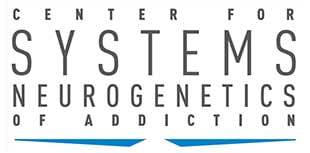Circadian Rhythms
Circadian rhythm and sleep disruptions increase the vulnerability for addiction disorders. Part of the link between circadian disruption and addiction may be due to shared molecular mechanisms, as genome-wide and targeted single-nucleotide polymorphism (SNP) association studies have revealed significant associations between circadian gene SNPs and addiction disorders.
This Project will use the Collaborative Cross and Diversity Outbred mice to investigate the genetics underlying the relationships between the core molecular clock and addiction related phenotypes. We will collect tissue samples from all mice for which behavior is recorded, isolate fibroblasts and use these cells to measure molecular rhythms across multiple days. We will also analyze circadian behavior on the Collaborative Cross mice and founders, including these data in the Center-wide correlation that examines relationships between all addiction-related behaviors studied in the Center. Finally, we will measure rhythms in core clock genes, input and output gene expression, as well as markers of epigenetic gene regulation in the suprachiasmatic nucleus (SCN) and other addiction-related brain regions such as the nucleus accumbens (NAc), ventral tegmental area (VTA) and prefrontal cortex (PFC).
Through this unique and collaborative project we will identify common phenotypes and ultimately genes that associate with both circadian rhythm disruptions and addiction-vulnerability.
